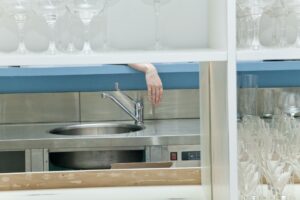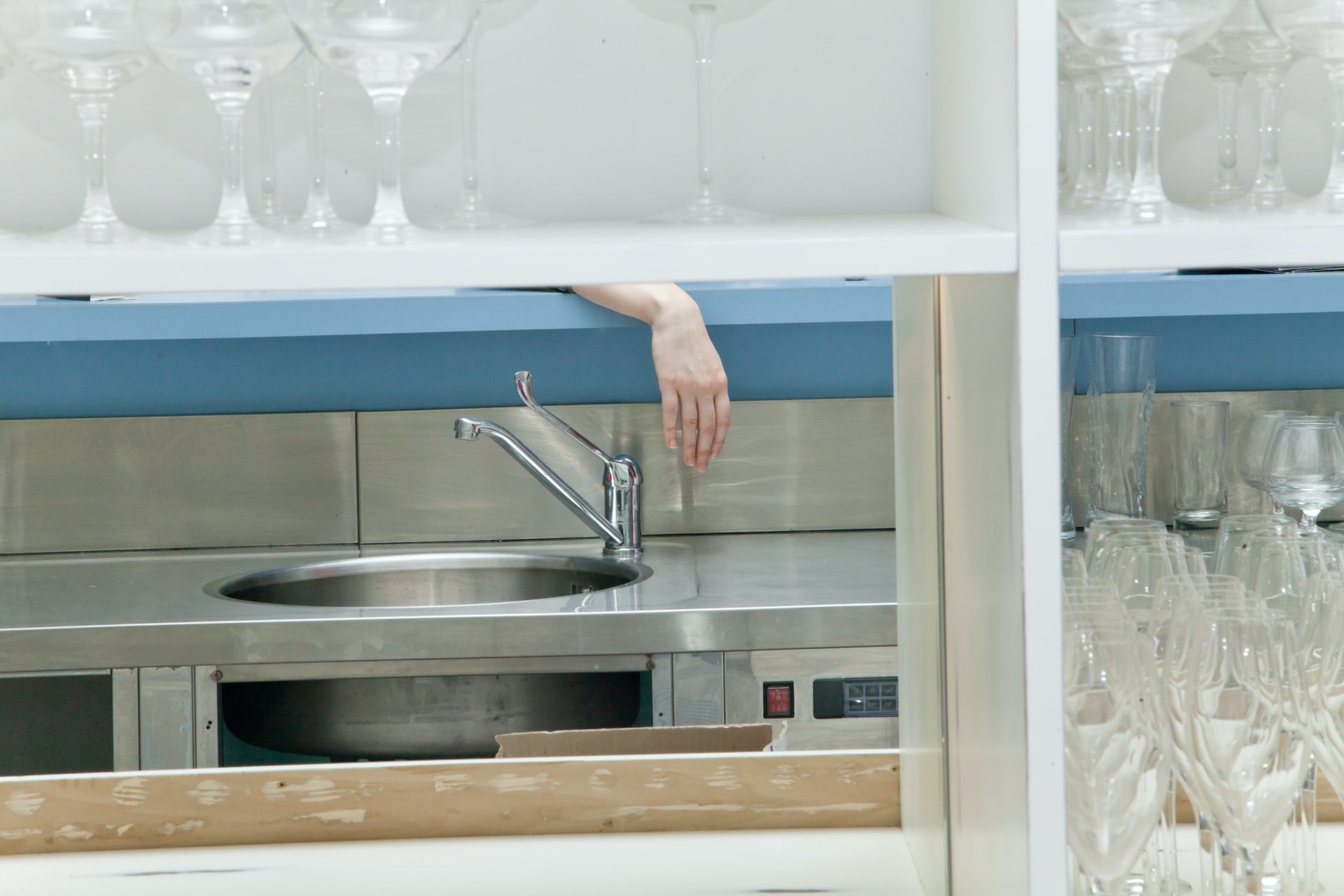 Is your new stainless steel sink rusting? Chances are, you are not the only one facing this problem. Most homeowners usually complain about this problem from time to time. To start with, you will realize that the best stainless steel kitchen sinks products are known to be resistant to corrosion.
Is your new stainless steel sink rusting? Chances are, you are not the only one facing this problem. Most homeowners usually complain about this problem from time to time. To start with, you will realize that the best stainless steel kitchen sinks products are known to be resistant to corrosion.
In fact, they can remain in good condition even when they are subjected to highly aggressive conditions, which make other materials to fail rapidly. However, this does not mean that your stainless steel sink cannot rust.
It is worth noting that stainless steel products are usually protected from a corrosive environment by a very thin but tenacious surface layer that is formed when chrome in the material reacts to the oxygen in the surrounding air. Sometimes, this layer usually gets damaged by both handling, and work is done on it.
When this layer gets damaged and exposed to corrosive chemicals or conditions, it is bound to get discolored. If this situation is not salvaged early enough, it can lead to rusting. Despite this possibility, stainless steel is one of the best sink brands. The following are some of the reasons why your new stainless steel sink is rusting:
Contents
1. Improper cleaning
How do you clean your sink? Do you use the best sink cleaner? If you usually clean your sink well, chances are that you can get rid of all the dirt present on it. However, if you fail, to remove all the dirt from the surface, the surface might not be thoroughly rinsed after cleaning.
Other times, the surface can be thoroughly dried after cleaning and this can still allow iron found in hard water to react with the oxygen in the air to form a rust film on your sink. This can actually make your stainless steel sink to rust.
More importantly, you should avoid the abrasive action when cleaning your sink. This will help the protective layer to remain intact for longer. Also, cleaning your sink regularly can help prevent the chances of rust formation.
2. Scouring the surface with steel wool or wire brush
You might have tried to clean your sink using steel wool or a wire brush. While these items might leave your sink cleaner than before, their particles might be left of the surface of the sink.
If these particles are exposed to humid air or even moisture, your sink might start rusting. This is very common in most kitchens out there.
3. Cleaning chemicals
Sometimes, the products used on the stainless steel sink might not necessarily make it to rust. However, the products used around the sink might lead to this problem. For instance, if there is a particular chemical that you use to clean your concrete or windows, this chemical can land on your stainless steel sink unawares.
Once this happens, it will react with the air around and form a rust film on the sink. Also, concrete dust from pouring floors, dust, dirt, and even grime can settle on your sink, and when it combines with the surrounding humid air, it will create a rusting appearance.
4. Leaving the soap dish on the sink
You might think that leaving the soap dish on the stainless sink is a good idea. However, this is not right as it might lead to rusting.
Some dish soaps are capable of causing a rust-colored residue. This actually looks bad and can appear to be rust. However, the good news is that it can be cleaned. Therefore, you should avoid leaving the dish soap on the sink to avert such problems.
5. Hard water
Do you live in an area that has hard water? If this is the case, your stainless steel sink is likely to rust. Apart from your sinks, faucets made of stainless steel will be at risk. But how do you get rid of hard water build-up in your faucet?
You will note that this water usually contains hard water minerals such as iron and other minerals that can accelerate rusting. If you do not have a water softener, your sink might be vulnerable and can eventually start rusting in the long run.
6. Leaving wet rags and sponges on the sink
The idea of leaving a wet rag or a sponge after cleaning your dishes might seem to be good, but it can make your sink to start rusting.
The moisture in these items can provide the required water needed for rust formation. This is the reason why you should keep them elsewhere for them to dry on their own.
7. Failure to keep the sink dry after cleaning
How do you usually leave the sink after cleaning your dishes? The problem is common among the people who own the best double kitchen sinks.
In as much as you might be in a hurry to do other activities in your kitchen, you should not fail to dry it. Leaving it to dry on its own can lead to rusting.
You can use a soft sponge to dry it so that no moisture is left on the sink’s surface. When drying these surfaces, you should use a dabbing action and not an abrasive or rubbing action. This in turn helps to prevent water from evaporating and forming water deposits.
8. Leaving salt or salty food on the sink
Are you fond of leaving salt or salty food on the sink? This can be detrimental. You should keep these items elsewhere. In fact, you should not allow the salt to remain on the sink’s surface for long.
If you let this salt to remain on the sink’s surface, it might lead to rusting. Keeping them at bay can help mitigate this situation.
9. Leaving wet dishes on the sink to dry on their own
Once you have cleaned your dishes, you should dry them using a soft towel. Leaving them on the sink’s surface to dry on their own can accelerate rusting. However, if you can wipe them after cleaning them and then dry the sink area, you will avert this problem.
10. Allowing the steel and cast iron cookware in your sink
You should avoid leaving these items on your sink for long as the iron in them might come into contact with moisture and cause rusting and even staining. Keeping them elsewhere can save you the ordeal of having a rusty sink.
Conclusion
Finally, avoid using your sink as a cutting board. By using your sink as the cutting board, you are eroding the protective layer that helps the sink to withstand hard conditions such as excess moisture and so forth. Getting a chopping board can help prevent this problem in the future.
Consider these ideas and your new stainless steel sink will remain in a pristine condition. It will look more attractive and even complement the look of your kitchen. Consider these ideas today, and you will be a happy homeowner.
